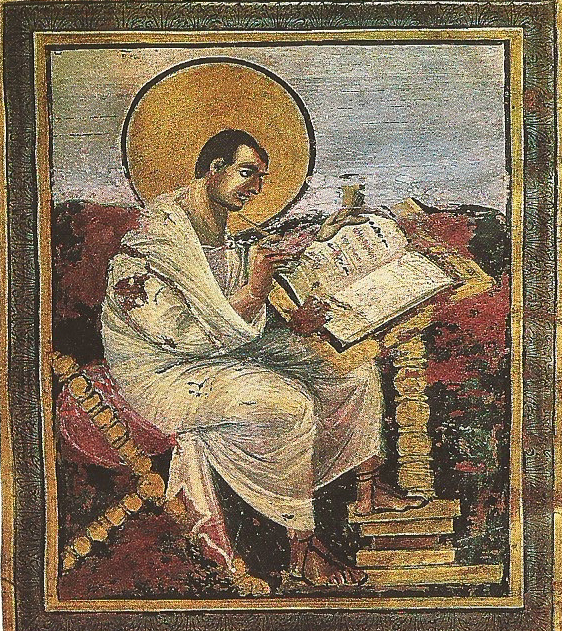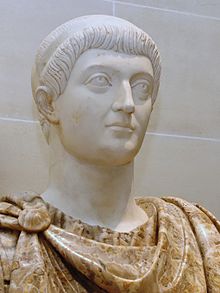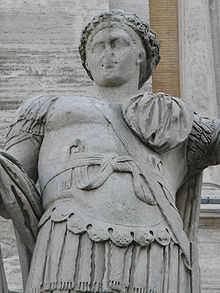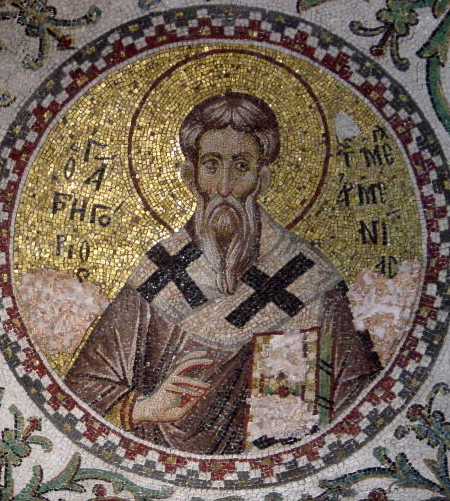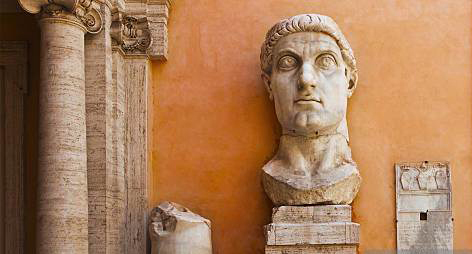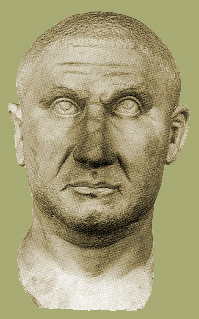Editor’s note: The author states below: ‘This provision [by Constantine] had serious consequences, as it was one of the first to deprive Jews, in practice, of owning farms’. This is how the first seeds were planted for the Jews to do what today is called ‘white collar’ jobs.
In the days of Ancient Rome the Jews still did not have an IQ superior to Whites. This policy of cornering Jews to work outside of what is now called ‘blue collar’ jobs continued until the French Revolution. Although the anti-Semitic seed of Constantine described below could be applauded by white nationalists, seeing it in perspective was a shot that backfired.
Parallel to allowing Jews in banking and usury, throughout the Middle Ages the best genes of White intellectuals ended, excuse me the crude expression, in the asses of the novices of the monasteries instead of in the fair sex. Unlike the Christians, medieval Jews never practised vows of celibacy. The artificial selection of genes that raised the IQ of the Jews at the expense of the lack of descendants of intelligent Whites (Aryan monks) was a courtesy of Christendom.
In previous chapters the author constantly used quotation marks around the word ‘pagans’. In this chapter he removed the quotation marks. Since ‘pagan’ was Christian newspeak of the 4th century, in some instances of this entry I’ll take the liberty to substitute the textual ‘pagan’ for something like ‘adepts of Greco-Roman culture’.
Below, abridged translation from the first volume of Karlheinz Deschner’s Kriminalgeschichte des Christentums (Criminal History of Christianity):
______ 卐 ______
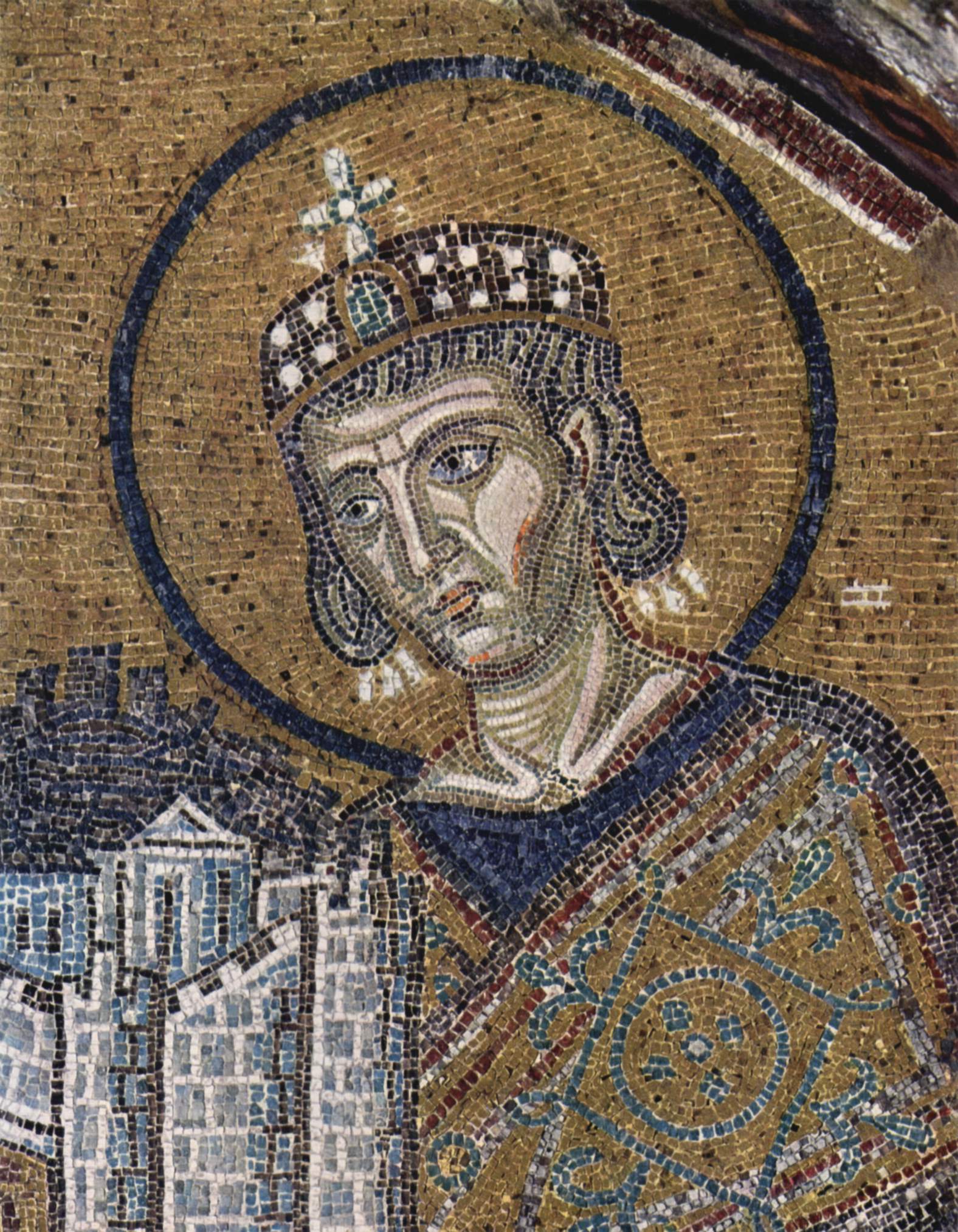 Constantine against Jews, ‘heretics’ and pagans
Constantine against Jews, ‘heretics’ and pagans
The emperor was not very friendly with the Jews, surely he was greatly influenced by the permanent anti-Semitic attacks of the doctors of the Church, which we have seen in chapter 2, and the recent Synod of Elvira, which had sanctioned with very strong penances the relations between Christians and Jews, in particular the attendance to blessings of fields and banquets celebrated by Jews.
The Roman emperors were quite tolerant of Judaism; not even Diocletian tried to force them to comply with the pagan rites. But after the Council of Nicaea Constantine comes to the conclusion, reflected in an epistle to all the communities, that the Jews ‘tainted by delirium’, ‘wounded by the blindness of the spirit’, ‘deprived of the right judgment’, are ‘an odious nation’ and except for one day a year forbids them to set foot on the city of Jerusalem that he and his mother had filled with churches.
In addition, he forbade them to have slaves like Christians. This provision had serious consequences, as it was one of the first to deprive Jews, in practice, of owning farms. The Christian who Judaized was sentenced to death. In addition, Constantine renewed a law of Trajan, promulgated two hundred years before, according to which the pagan who was converted to Judaism was condemned to the stake.
Even harder was the policy against the ‘heretics’, and this already from the time of the regency, from the year 311, on the grounds that many of those who had abjured Christianity wanted to receive baptism again. This resulted in a schism with bloody repercussions that lasted for several centuries. It is at that time when the definition of ‘catholic’ as opposed to the figure of the ‘heretic’ appears for the first time in an imperial document.
The Donatists rejected the association with the State, the Constantinian alliance between the throne and the altar. They judged that they were the true Ecclesia sanctorum and that the Roman Church was the civitas diaboli. They appealed to the Christian’s beliefs by demanding greater austerity for the clergy. Constantine’s campaign against Licinius turned against the Donatists at the instigation of Bishop Caecilianus in a campaign that lasted several years, presided over by the decision to ‘not tolerate even the slightest hint of division or disunity, wherever it may be’. Moreover, in a letter from early 316 to Celsus, vicar of Africa, Constantine threatened: ‘I intend to destroy the errors and repress all the nonsense, in order and effect to offer to all the human race the only true religion, the only justice and unanimity in the worship of the almighty Lord’.
To the Donatists he took away their churches and their fortunes, exiled their chiefs and commanded troops who slaughtered men and women. The hecatomb of the adepts of Hellenism had not yet begun and Christians were already making martyrs of other Christians.
Constantine also fought against the Church of Marcion, an older church and at some point probably also more followed than the Catholic Church. Constantine prohibited the offices of the Church of Marcion even when they were held in private homes; had their images and properties confiscated, and ordered the destruction of their temples. His successors, most likely instigated by the bishops, stepped up the persecution of this Christian sect after having defamed it and by all means, including through falsifications during the 2nd and 3rd centuries. In 326, shortly after the Council of Nicaea, Constantine issued a scathing edict ‘against heretics of every kind’, in case it was authentic of course and not a figment of Eusebius.
Constantine’s actions against the ‘heretics’ set an example, but at least he respected life most of the time. After all, he did not care about religion as much as the unity of the Church on the basis of the Nicaea Council, and hence the unity of the empire. Undoubtedly, he had an exclusively political concept of religion, although religious problems always, and from the first moment, were presented in relation to social and political conflicts. In the interest of state power he promoted the unity of the Church. This, and not another, was the cause of his hatred of all kinds of discord. ‘I was sure that, if I could complete my purpose of uniting all the servants of God, I would reap abundant fruits in the public interest’, he wrote in a letter to Arius and Bishop Alexander.
In the year 330, Constantine sends a sentence against the Neo-Platonic school and even orders the execution of Sopater, who had been presiding over this school since the death of Iamblichus. The adepts of Hellenism become ‘fools’, ‘people without morals’ and their religion a ‘hotbed of discord’. Constantine’s true intention was that all humans ‘revered the one true God’ and that they forsake ‘the temples of the lie’.
While the adepts of Hellenism of the western provinces still enjoyed relative tranquillity, in the East the persecutions began after the definitive defeat of Licinius (324). Constantine forbade the erection of new statues to the gods, the worship of existing ones, and the consultation of oracles and all other forms of Greco-Roman worship.
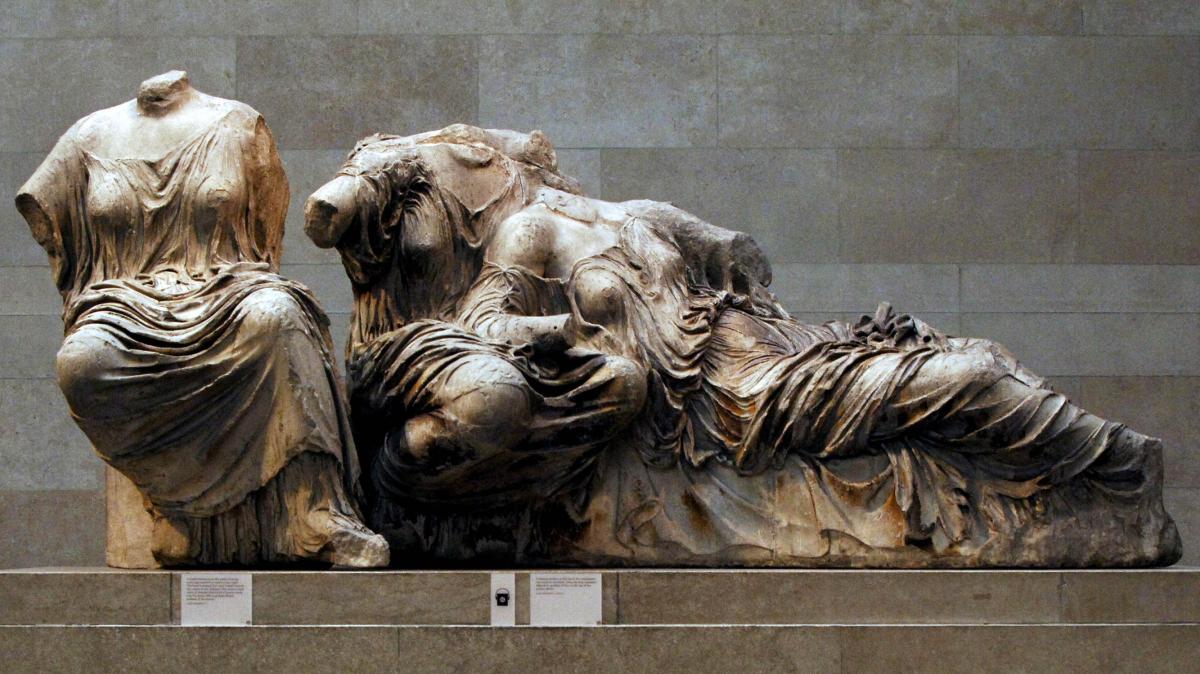
In 326 Constantine came to order the destruction of all the images, while in the East he began the confiscation of temple properties and the plundering of valuable works of art. In his new capital, blessed on May 11, 330 after six years of work funded in part through the treasures confiscated from the temples, Constantine banned the worship and the festivals of the adepts of Hellenism and rents were no longer paid to the temples of Helios, Artemis Selene and Aphrodite.
Constantine, described as a ‘renegade’ and ‘innovator and destroyer of ancient and venerable constitutions’ by Emperor Julian, but praised by many modern historians, soon prohibited the repair of Greco-Roman temples and ordered numerous closures and destructions ‘directed precisely against those who had been most revered by the idolaters’ (Eusebius). He arranged the closing of the Serapis of Alexandria, the temple to the Sun-God in Heliopolis, the demolition of the altar of Mamre (because the Lord himself had appeared there to Father Abraham, in the company of two angels), and that of the temple of Aesculapius in Aegae, the latter being fulfilled with such diligence ‘that not even the foundations of the ancient ravings remained’ (Eusebius).
Constantine also ordered the destruction of the temple of Aphrodite on Golgotha, for the ‘great scandal’ that it represented for the believers; it was also the turn of Aphaea in Lebanon from whose sanctuary came ‘a dangerous web to hunt souls’ and which, according to the emperor, ‘does not deserve the sun to shine’. There was no stone left upon a stone; and the very famous Heliopolis was burned down and reduced to rubble by a military command.
Constantine burned Porphyry’s controversial writings. From the year 330, when Neo-Platonism was forbidden, Christians abounded in looting of temples and breaking images, as all Christian chroniclers celebrated and despite such activities having been implicitly prohibited by the Council of Elvira.
Contrary to what Christian historians would like us to believe, the emperor, naturally, was not interested in fighting face to face with the Greco-Roman culture that still held the majority in much of the empire and retained part of its strength, which of course does not mean that there were not well received ‘the small material expropriations’ (Voelkl): the stones, the doors, the bronze figures, the vessels of gold and silver, the reliefs, ‘the valuable and artistic ivory votive offerings confiscated in all the provinces’, as Eusebius highlights.
‘Everywhere they went stealing, looting and confiscating the images of gold and silver and the bronze statues’ (Tinnefeid). Constantine did not even respect the famous tripods of the fortune-teller of the sanctuary of Apollo at Delphi. The historian Kornemann notes ‘a theft of works of art as has never been seen in all of Greece’.
Even St. Jerome criticized that the city of Constantinople had been built with the booty of almost all other cities. ‘In the blink of an eye, whole temples would disappear’, rejoices Eusebius. The entire Olympus was gathered in the ‘new Rome’, where the emperor, even without daring to tear down the temples, had all the statues removed from them. The most venerated gods were installed in bath-houses, basilicas and public squares. The deified Apollo, which had been the most venerable monument in the Hellenic world, was converted into a Constantine the Great. ‘Immense riches disappeared from the coins or went to fill the empty coffers of the Church’, Voelkl reminds us.
Eusebius tells us that… the temples and sanctuaries, once so proud, were destroyed without anyone ordering it, and churches were built in their place and the old delirium was forgotten.
However, at the Easter of 337 the sovereign fell ill. First he sought remedy in the hot baths of Constantinople, and then in the relics of Lucian, protective patron of Arianism and disciple of Arius himself. Finally he received on his farm, Achyronas of Nicomedia, the waters of baptism despite his desire to take them on the banks of the Jordan in imitation of Our Lord. At that time (and until about 400) it was customary to postpone baptism until the last minute, especially among princes responsible for a thousand battles and death sentences. As Voltaire suggests, ‘they believed they had found the formula to live as criminals and die as saints’. After the baptism, which was administered by another colleague of Lucian named Eusebius, Constantine died on May 22 of the year 337.
While the Christians have almost dispensed with their common sense for praising Constantine, obviously there are very few testimonies of his critics that have reached us, among them those of the Emperor Julian and the historian Zosimus.
